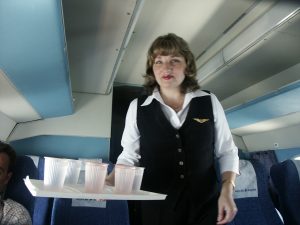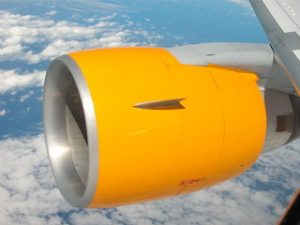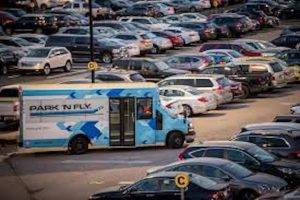How Lyft Careers Are Similar To Airline Careers
 Working at Lyft builds confidence, focus, and people skills. These traits transfer well to aviation jobs. Drivers learn to manage time well. They also stay calm under pressure. Communication improves daily through rider interactions. Safety habits become second nature. All these qualities support success in the airline industry.
Working at Lyft builds confidence, focus, and people skills. These traits transfer well to aviation jobs. Drivers learn to manage time well. They also stay calm under pressure. Communication improves daily through rider interactions. Safety habits become second nature. All these qualities support success in the airline industry.
Precision and Focus of Lyft careers
Lyft drivers must navigate roads with care. Precision helps avoid delays and accidents. In aviation, pilots also rely on precision. Both jobs demand attention to every detail. A small mistake can cause bigger issues. Lyft careers teach focus through repetition. This habit becomes valuable in aviation settings.
Time management begins behind the wheel
Drivers follow strict schedules each day. They learn to calculate timing between pickups and drop-offs. Pilots must also manage time effectively. Delays affect airline operations and passenger plans. Lyft workers learn how to adapt quickly. Fast decisions help save time during busy shifts. These habits help airline professionals succeed.
Customer service that soars
Friendly service matters at Lyft. Each ride gives workers chances to build trust. Pilots also need strong service habits. They help passengers feel safe and cared for. Clear speech and respectful tone help build confidence. These traits carry into every corner of aviation. Smooth travel begins with excellent service.
Staying calm in high-stress moments
Traffic jams and unexpected events test drivers daily. They must stay calm while thinking fast. In the sky, stress also appears without warning. Pilots need clear minds during turbulence or delays. Lyft careers train people to handle stress with grace. These habits grow stronger through experience.
Communication that builds trust
Drivers explain routes, answer questions, and solve issues quickly. This boosts their verbal communication daily. In aviation, pilots use clear words to share flight updates. They also talk with crew and air traffic control. Miscommunication causes delays or safety issues. Lyft workers gain a strong base in speaking clearly.
Teamwork from ground to air
Though many Lyft shifts feel solo, drivers rely on support teams. Dispatchers, customer service, and tech staff help behind the scenes. Airline crews operate in tight teams as well. Pilots, attendants, and mechanics work together constantly. Respect for others builds stronger performance. Lyft jobs teach that early on.
Decision-making in motion
Fast decisions keep drivers safe and efficient. They must choose alternate routes and deal with changing plans. In aviation, every moment matters. Pilots choose flight paths, adjust to weather, and manage systems in real-time. Lyft workers train for this with each shift. These decisions become smoother over time.
Safety always comes first
Lyft puts strong focus on rider safety. Workers check cars, follow rules, and respond to emergencies. This mindset carries well into aviation. Pilots follow detailed safety checks for each flight. Training and habits from Lyft prepare future aviation workers. Safety becomes a normal part of daily work.
Adapting to new tools and technology
Drivers learn to use apps, navigation tools, and safety systems. These skills transfer easily to airline work. Pilots must use advanced flight tech daily. They also update software and report issues. Lyft workers stay tech-savvy and curious. This helps them learn new aviation systems fast.
Cultural awareness and respect
Lyft drivers meet people from many backgrounds. They learn to listen, adjust, and treat all riders well. Airlines also welcome global passengers. Cultural awareness helps everyone feel welcome and respected. Lessons from rideshare work build sensitivity. These habits strengthen international aviation careers.
Learning to stay organised
Every Lyft shift requires planning. Drivers prepare their vehicles, check maps, and plan routes. In aviation, pilots also prepare well. They review flight plans and study weather patterns. Organization improves with practice. Lyft jobs create strong habits that support future pilot success.
Independence that builds responsibility
Drivers manage their own time and tools. They take charge of each ride from start to finish. Airline careers also involve self-guided work. Pilots must check systems and report issues alone. Lyft workers grow in confidence through self-reliance. This sense of control carries into aviation settings.
Problem-solving with a calm mindset
Broken GPS or lost luggage both require quick thinking. Lyft jobs teach how to solve problems with calm actions. In the air, small issues can grow fast. Pilots troubleshoot equipment, route changes, and passenger needs. Quick solutions often prevent bigger issues. Lyft workers gain this skill early.
Flexibility in all situations
Schedules often change in rideshare work. Lyft drivers adjust to traffic, cancellations, or last-minute pickups. Aviation jobs also demand flexibility. Flights delay, reroute, or adjust crew duties often. Adapting fast helps both jobs succeed. Workers from Lyft bring that mindset into airline careers with ease.
Professionalism that builds career paths
Drivers grow through habits like courtesy, cleanliness, and time respect. These qualities show professionalism over time. In the airline industry, workers follow codes of conduct. Pilots and crew act with care and respect. Lyft jobs offer early training in these values. These actions open future doors.
Handling confidential information securely
Lyft workers protect user data daily. They manage payments and personal info with care. Airlines also need secure habits. Passenger records, flight logs, and system updates need protection. Workers who value data safety thrive in both fields. Lyft careers offer that training from the start.
Leadership in action
Even without formal titles, Lyft drivers act as leaders. They guide riders and manage tough situations daily. Airline pilots lead crew and passengers every flight. They make key choices and inspire confidence. Lyft builds quiet leadership through real action. This prepares workers for larger team settings.
Ethical habits that guide every step
Honesty, fairness, and respect shape Lyft work daily. Drivers follow fair pricing and treat riders with care. Aviation also runs on ethics. Safety reports, decision-making, and team respect require strong values. Lyft teaches these early. They stay useful throughout any career path in aviation.
Stamina from the ground up
Long hours test both drivers and pilots. Lyft careers build energy and focus over time. This stamina supports aviation tasks. Flying, planning, and problem-solving all need strong focus. Lyft workers enter aviation with strong mental and physical habits. These help during long flight shifts and global routes.
Global skills from local streets
Each city teaches Lyft workers something new. They learn routes, behavior patterns, and how to stay alert. Airline careers also demand awareness across regions. Geography, time zones, and global rules shape each flight. Lyft careers build that awareness. Local knowledge becomes global strength.
Strong work ethic through consistency
Daily driving requires commitment. Lyft workers show up on time and serve people consistently. Aviation jobs also need strong work ethic. Pilots and crews repeat tasks daily without errors. Lyft habits help build that dependability. These workers transition into aviation with strength and structure.
Confidence that lifts you higher
Driving strangers grows confidence fast. Lyft drivers build self-esteem through repeated success. Pilots also need strong self-belief. They make choices under pressure. They also inspire passengers and crews. Lyft experience strengthens that quiet confidence. It supports every stage of a flight career.
Taking feedback and growing with it
Passenger ratings and feedback shape Lyft workers daily. They learn to adjust and grow from reviews. In the airline field, performance checks help professionals grow. Listening and improving are key habits. Lyft jobs build strong foundations in receiving feedback with grace. Growth becomes a daily process.
Mentorship starts early
Experienced Lyft drivers help new ones often. They offer tips, encouragement, and shared wisdom. Aviation also depends on mentorship. Pilots guide trainees and share lessons. Lyft careers teach how to receive and give guidance. This cycle of support continues in the sky.
From streets to skies
Shifting from Lyft to aviation feels natural for many. Habits gained from driving support flying well. Daily exposure to people, time pressure, and navigation makes airline careers easier to begin. Safety, service, and focus come from real practice. With each ride, a Lyft driver grows closer to flying.
Wheels on the ground to wings in the air
Careers at Lyft provide steady growth. Workers sharpen key skills every day. These same skills matter in aviation. Confidence, service, time awareness, and safety remain useful long after the last ride. Shifting to airline work becomes smoother. Growth never stops once it starts. Lyft opens the door.









